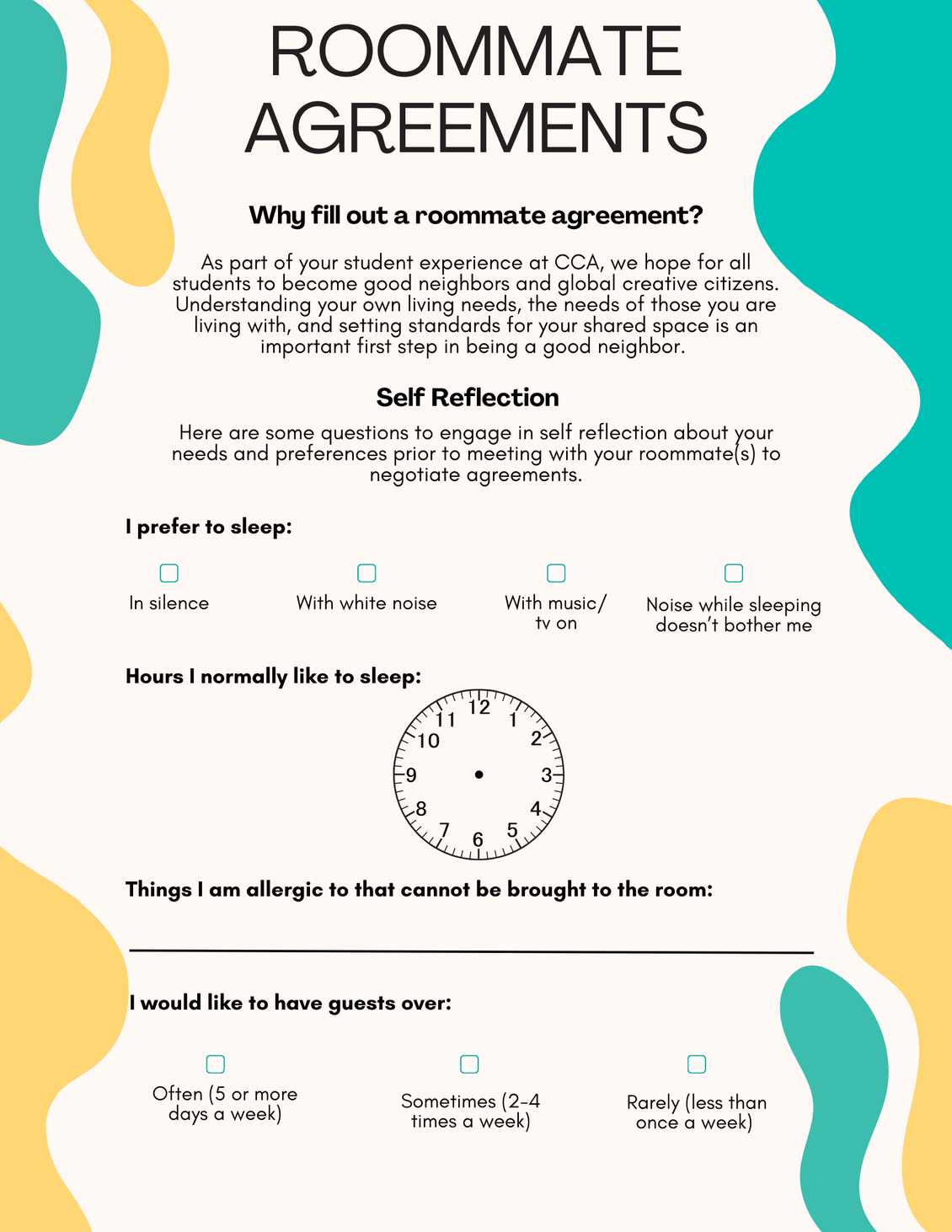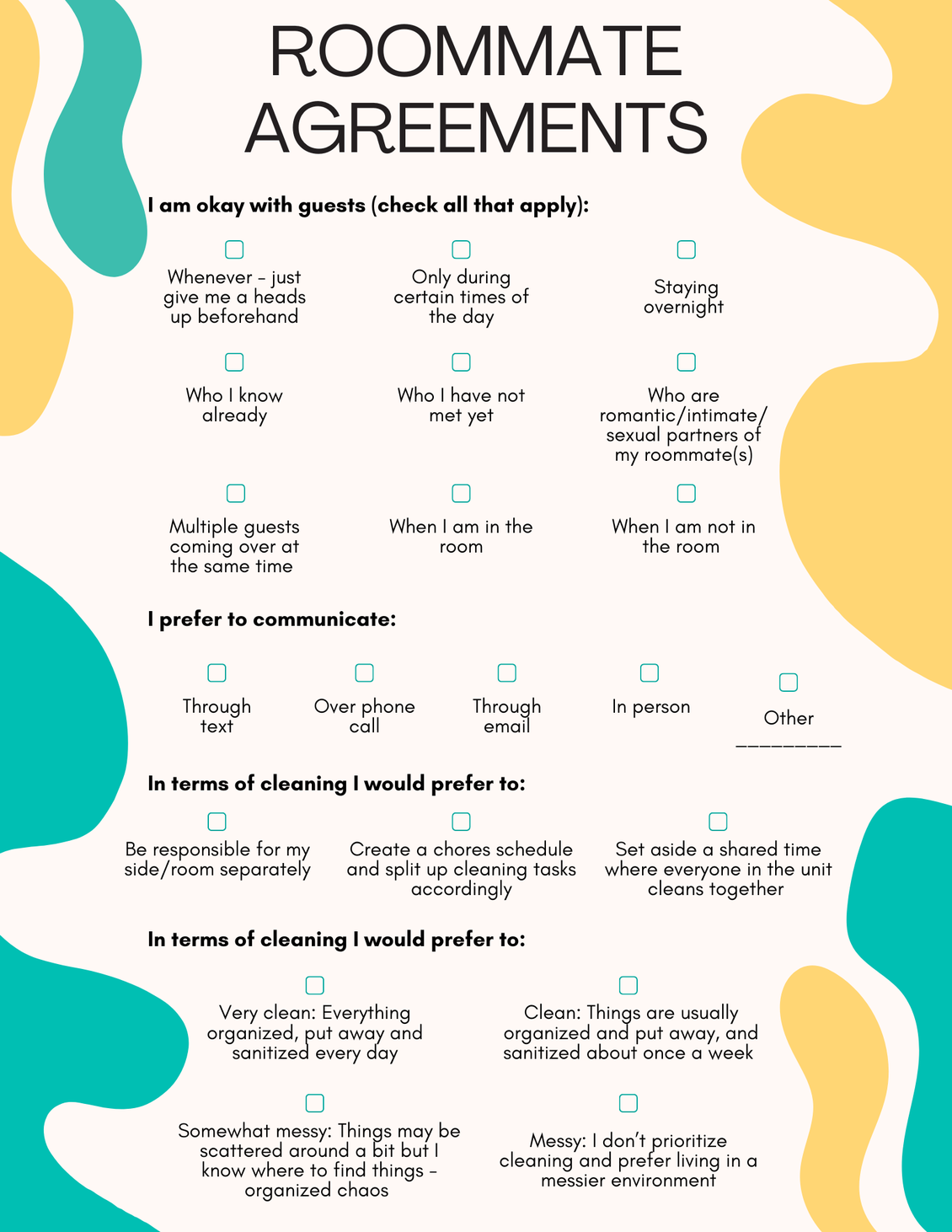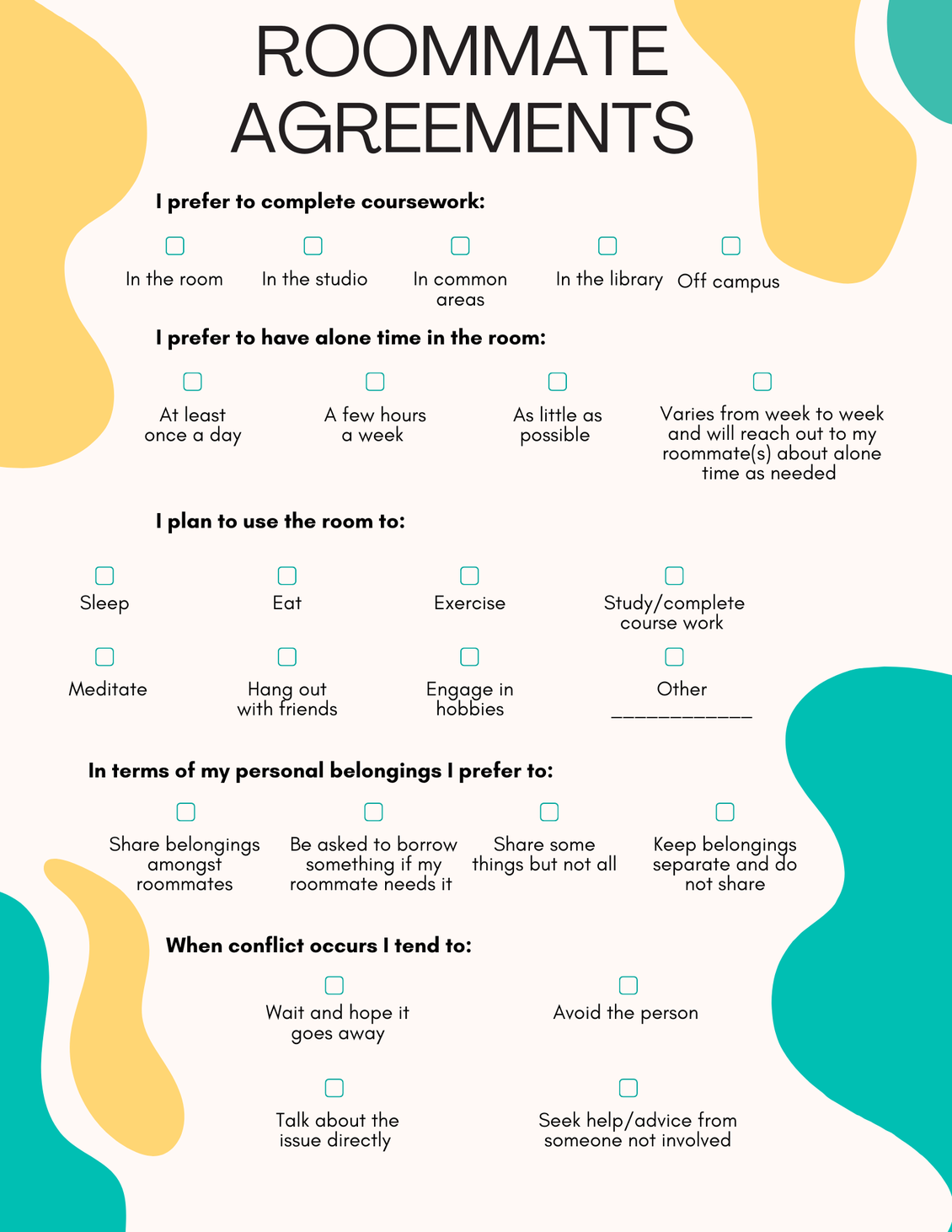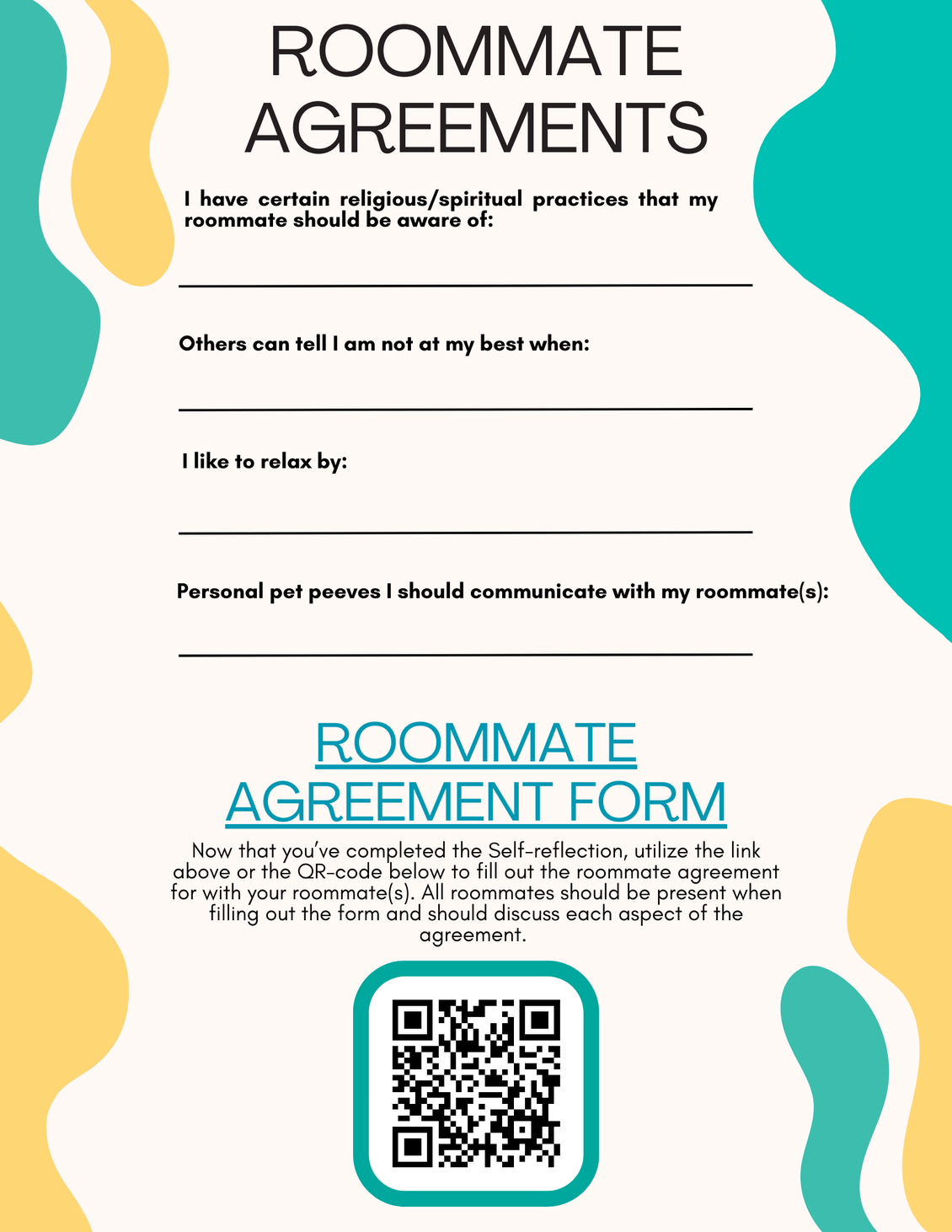Living with Others
Get to Know Each Other
Take some time to understand the people living with you. Knowing why their grades are important may explain why they stay up late working on assignments, for example. Spend some time with each other talking about your families, neighborhoods, things that happened to you, what you will miss being away from home, hobbies, your favorite movie, and where you want to visit while living in San Francisco.
You will find it easier to understand each other as you share experiences.
Communicating
Building a good relationship with your roommates and housemates will benefit you now and serve you later in other relationships. Like building a house, roommate relationships require skills we can learn, and the foundation is communication.
Being honest and open from the beginning will make it easier to talk later about how your relationship is changing. It will be easier to resolve issues if you communicate directly and immediately as problems arise. Open and honest communication is not only important when you first meet - but especially day-to-day.
You are capable of learning and applying these skills.
You are responsible for:
- Knowing what is important to you
- Being accountable for your behavior
- Confronting (talking clearly and directly to) someone who is violating your rights
- Identifying the compromises necessary for living with others
- Negotiating and renegotiating an agreement that works for all residents
Conflicts & Differences
Differences are typical and offer an opportunity for growth. Conflict exists in all relationships, and it can be an opportunity for interpersonal growth and learning about different people. Sometimes roommates become close friends, and many will not become close but will live together respectfully. As you learn to read each other's feelings, you will find it easier to resolve the inevitable differences that surface when two or more people live together.
You do not need to be friends for life with your roommate, but showing consideration and fairness is crucial to building mutual respect.
Negotiating an Agreement
Before negotiating with your roommate/housemates, take time to go through the exercises pictured below - alone.
- Then, sit down together to share results verbally.
- Negotiate, compromise, and develop agreements on all issues listed in the following form found un the QR code on the last page.
- Submit the Roommate Agreement form together.
- Agreements can be re-negotiated at any time.
- Your RAs are good resources and can help mediate disagreements.
Essential things to negotiate:
- Hours for quiet/study time
- Who cleans what and how often
- When guests are welcome, and for how long
- Which personal possessions are off-limits and which are shareable
- Can you sleep with the lights on? With the window open? With music playing?
Roommate Agreement
Roommate Agreements are encouraged to be completed by each unit or suitemates with all roommates anytime a new individual or group moves in. For support or mediation for agreements find your floor RA and ask for support. Campus Life also has templates that can help guide the process!



Navigating Conflicts
The roommate agreement is a necessary baseline to begin living with your new roommates harmoniously. It is impossible to foresee all potential issues with this document. Conflict is bound to come up at some point. Here are some basic tips to get through conflict when it arises.
- Communicate openly! If something is bothering you, tactfully share your complaint. Behaviors will rarely resolve themselves. You owe it to yourself and your roommate to share when something is not working.
- Remember that everyone has good and bad days; do not take it personally if your roommate is in a bad mood.
- Address problems right away; don't let them build.
- Show appreciation when things are working. Constantly nagging someone about what they do wrong will negatively impact your relationship with someone. However, praising them when they do something right will improve your relationship with them!
In case a conversation with your roommate did not go as you hoped, or if you are having trouble finding a way to bring up an issue, feel free to call or text the RA On-Duty phone number.
Residential Education Staff members are available to assist you in navigating conflicts, but cannot solve the problem for you. It is ultimately up to you and your roommate to make your living situation work.
